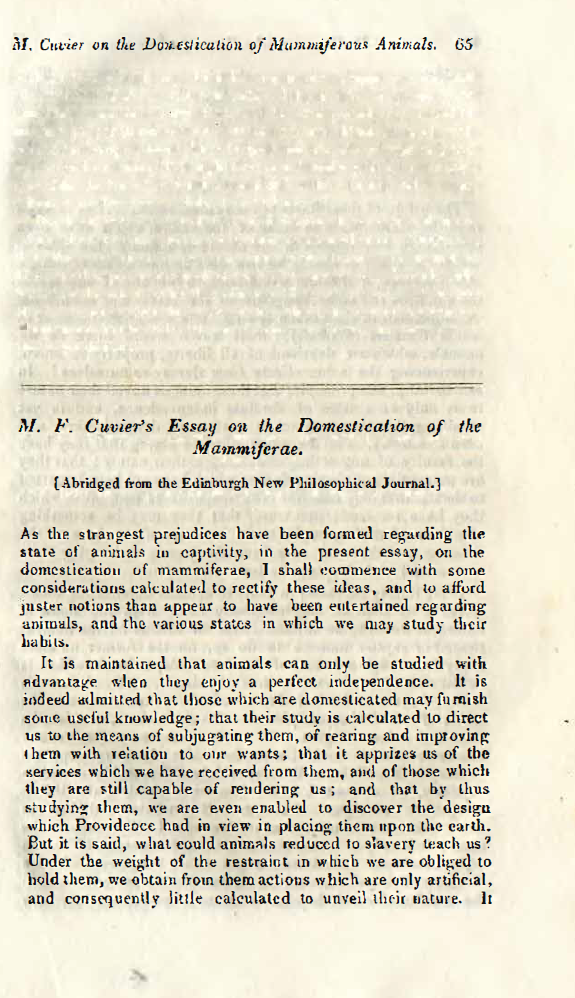M. F. Cuvier's essay on the domestication of the mammiferae
DOI:
https://doi.org/10.21504/saqj.15.2603Keywords:
Mammals, Mammals -- Domestication, Animal captivity, Domesticity, Animals - Philosophical theoriesAbstract
This essay by H. F. Cuvier, abridged from the Edinburgh New Philosophical Journal, critically examines common prejudices regarding the study of animals in captivity and explores the principles of domestication of mammals. The author challenges the notion that animals can only be studied advantageously in a state of perfect independence, arguing that the concept of "state of nature" is as illusory for wild animals as it is for captive ones, as both are governed by environmental forces. Cuvier differentiates sharply between slavery (for humans, based on force and intellectual degradation) and domesticity (for animals, based on seduction, satisfying or manipulating their natural wants).
The essay posits that captivity, by removing the influence of predominating natural powers, actually allows for a more accurate and complete examination of an animal's faculties than observation in the wild. It refutes the idea that intelligence is strictly proportional to physical perfection, noting that young animals are often more intelligent than mature ones. Effective domestication, the author argues, relies on benefits (such as food and affection) to create a dependency on humans, thereby developing sociability and making the animal amenable to authority. Force and excessive punishment are deemed counterproductive, as they lead only to fear or hatred. The text concludes by stating that understanding and manipulating an animal's wants and instincts is the key to successful taming and securing future services from domestic species.
Downloads

